Politics
/ArcaMax

Man arrested for pointing laser at Marine One while Trump was on board
A 33-year-old Washington D.C. man is accused of aiming a laser pointer at Marine One while the chopper was carrying President Trump.
Marine One was airborne and headed toward the Washington Monument grounds with the President on board Saturday night when Secret Service officer Diego Santiago spotted suspect Jacob Samuel Winkler “shirtless, ...Read more
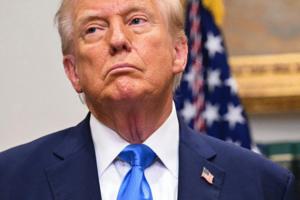
In a dizzying few days, Trump ramps up attacks on political opponents and First Amendment
WASHINGTON — President Donald Trump has harnessed the weight of his office in recent days to accelerate a campaign of retribution against his perceived political enemies and attacks on First Amendment protections.
In the last week alone, Trump replaced a U.S. attorney investigating two of his political adversaries with a loyalist and openly ...Read more

Trump, officials link Tylenol to autism as medical community balks
WASHINGTON — President Donald Trump and White House officials announced that the administration will advise against taking acetaminophen, the medicine in Tylenol, during pregnancy, citing widely discredited concerns that it could cause autism, in the latest effort rebuking long-standing public health guidance.
Top medical organizations and ...Read more
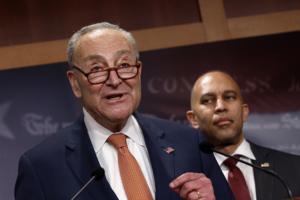
Trump to meet with Democratic leaders ahead of shutdown deadline
WASHINGTON — President Donald Trump is planning to meet with top congressional Democrats this week about the government funding impasse, White House and Capitol Hill officials said Monday, after lawmakers left Capitol Hill for a week on Friday with little movement toward averting a partial shutdown starting Oct. 1.
Trump will squeeze in the ...Read more
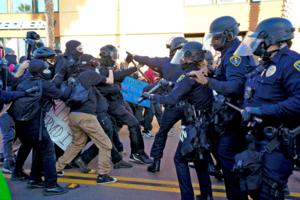
Trump declares war on antifa. Can a movement be a terrorist organization?
President Trump moved Monday to classify the left-wing, anti-fascist movement known loosely as antifa as a domestic terrorist organization, opening up a new front in his battle with political foes and raising legal and ethical questions about how the U.S. government can prosecute a movement.
Antifa activism and violence has spread during the ...Read more

Trump cancels trail, bike-lane grants deemed 'hostile' to cars
The Trump administration canceled grants for street safety measures, pedestrian trails and bike lanes in communities around the country this month, each time offering a simple rationale for yanking back federal aid: The projects aren’t designed for cars.
A San Diego County road improvement project including bike lanes “appears to reduce ...Read more

Suing Trump, remembering Charlie Kirk, and ending school segregation: What you missed in the NJ governor's race debate
LAWRENCEVILLE, N.J. — About 1,500 people filled a gymnasium in Lawrenceville on Sunday night to watch the first debate between the two candidates vying for New Jersey governor: U.S. Rep. Mikie Sherrill, the Democratic nominee, and Jack Ciattarelli, the GOP nominee.
Both candidates made the case that they would make New Jersey more affordable....Read more
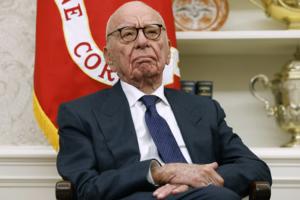
Murdoch calls Trump's Epstein suit 'affront' to free speech
NEW YORK — Rupert Murdoch and News Corp. asked a U.S. judge to throw out President Donald Trump’s $10 billion libel lawsuit over a Wall Street Journal report tying him to a bawdy birthday note to the late Jeffrey Epstein, calling the case “an affront to the First Amendment.”
The July 17 story about a note bearing Trump’s signature ...Read more
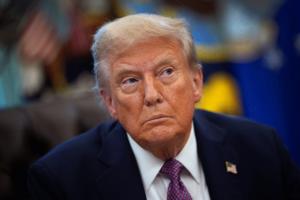
Supreme Court to reconsider a 90-year-old precedent protecting independent agency officials
WASHINGTON — The Supreme Court said Monday it will decide on reversing a 90-year precedent that has protected independent agencies from direct control by the president.
The court's conservative majority has already upheld President Donald Trump's firing of Democratic appointees at the National Labor Relations Board and Merit Systems ...Read more
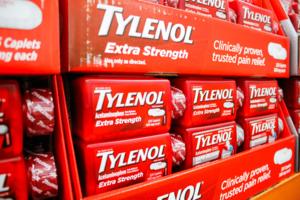
Trump report purports to link autism to Tylenol use by pregnant women
President Trump’s administration released a report on Monday that Trump claims links childhood autism to Tylenol use by pregnant women, though he did not provide any evidence while speaking at the White House.
The report advises women to avoid using the common fever-reducer early in pregnancy, even though most medical studies have not found ...Read more

When debate leads to death
Americans long ago decided to trade bullets for ballots. But this exchange isn’t the norm around the world — and isn’t inevitable here either.
The shooting of Charlie Kirk is more than just a horrible tragedy for his family and friends. It was an attack on civil discourse itself. That’s a grave threat to the country’s constitutional ...Read more

Trump's attack on justice: Ousted prosecutor Erik Siebert was right to refuse a phony indictment of Tish James
Donald Trump’s destructive onslaught against the fair administration of justice and his politicization of prosecutorial power continues. That is what dictators do, which is one of the reasons Trump so admires them.
Trump has now fired Erik Siebert as the U.S. attorney for the Eastern District of Virginia for refusing to gin up phony mortgage ...Read more
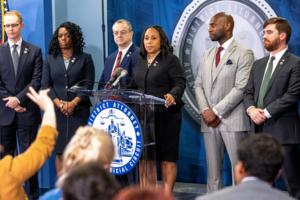
Georgia election case, once seen as strongest against Trump, hits the skids
ATLANTA — A blockbuster racketeering case that launched with a bang a little more than two years ago is seemingly ending with a whimper.
On Aug. 14, 2023, Fulton County District Attorney Fani Willis was the picture of solemnity as she and her team walked to a lectern to announce they had secured charges against then-former President Donald ...Read more
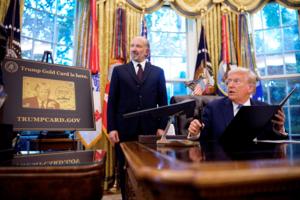
Trump's $100,000 H-1B fee fuels stress for staff, employers
Satish, a graduate student from India studying in San Francisco, thought this fall would be about finishing his business degree and then lining up an H-1B visa, the work permit that’s become a mainstay for skilled immigrants in the U.S.
Instead, he’s worried about his ability to build a career in the U.S. as he tries to make sense of the ...Read more
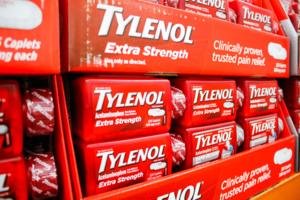
Trump report links autism to Tylenol use by pregnant women
President Donald Trump was set to release a new report Monday that he says links childhood autism to Tylenol use by pregnant women.
The report is expected to advise women to avoid using the common fever-reducer early in pregnancy, even though most medical studies have not found any conclusive link to rising levels of autism in children.
Trump ...Read more
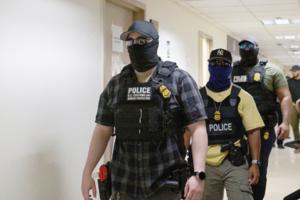
Commentary: The cruel arithmetic of Trump's immigration crackdown
As summer 2025 winds down, the Trump administration’s deportation machine is operating at full throttle—removing over one million people in six months and fulfilling a campaign promise to launch the “largest deportation operation in American history.” For supporters, this is a victory lap for law and order. For the rest of the lot, it’...Read more

Administration to link Tylenol to autism, WaPo reports
Trump administration officials plan to link the active ingredient in Tylenol to autism Monday, the Washington Post reported, citing unnamed people familiar with the matter.
Officials plan to warn pregnant women against using the medication, one of the world’s most common, over-the-counter pain relievers, unless they have a fever, the paper ...Read more

Kim Jong Un touts good Trump memories, rejects denuclearization
North Korean leader Kim Jong Un said he has “good memories” of Donald Trump and could talk with the U.S. president again if Washington drops its demands that Pyongyang dismantle its nuclear program, adding that he’ll never surrender his nuclear arsenal.
“Personally, I still have good memories of the current U.S. President Trump,” Kim...Read more

Syria sets first post-Assad parliamentary elections for Oct. 5
Syria scheduled its first parliamentary elections since the fall of former President Bashar al-Assad for Oct. 5, as its new leaders seek to rebuild state institutions amid diplomatic efforts to stabilize the war-battered country.
Voting for members of the People’s Assembly will take place across all electoral districts, Syria’s state-run ...Read more

There's a new congressional effort to address housing affordability
Calling it an effort to “save the ‘American dream,’” a bipartisan cohort of House members has teamed up to address housing affordability issues across the country.
They are starting with identifying the factors that are impeding home ownership.
The newly introduced bill would create an interagency task force to address mortgage, ...Read more
Popular Stories
- Administration to link Tylenol to autism, WaPo reports
- Kim Jong Un touts good Trump memories, rejects denuclearization
- Trump picks new Virginia prosecutor after scolding Bondi inaction
- There's a new congressional effort to address housing affordability
- Syria sets first post-Assad parliamentary elections for Oct. 5






















































